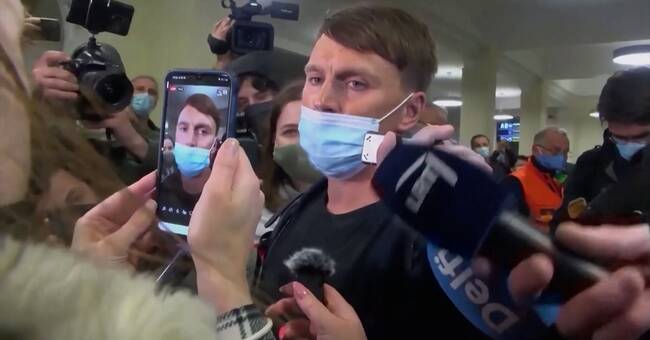On the morning of May 23, Ryanair's FR4978 took off from the Greek capital Athens, and was on its way to the Lithuanian capital Vilnius.
But just minutes from the Lithuanian border, the plane changed course over Belarus and landed in Minsk instead.
There were over 100 passengers on board, including regime critic Roman Protasevich and his girlfriend Sofia Sapega, both of whom were arrested at the airport.
It was Belarus President Alexander Lukashenko who is said to have ordered the landing in Minsk, which was carried out using fighter jets.
The Belarussian government says the reason was that the plane was bombed, something that has not been confirmed by independent sources.
According to Ryanair, no dangerous object has been found on board.
Pratasevich, 26, has co-founded the Telegram channel Nexta, which, among other things, broadcasts and disseminates information about protests against the regime.
He has been living in exile for two years - to avoid being arrested and sentenced to prison in Belarus.
But despite the exile, the Belarusian authorities managed to get hold of him.
Ryanair's CEO, Michael O'Leary, has said that the passengers and crew were guarded by armed agents and had their belongings searched.
The plane could only take off for Vilnius after seven hours.
The Swedish Transport Agency is now advising Swedish airlines not to fly over Belarusian airspace.
The leaders of all 27 countries have decided to stop Belarusian airlines from operating in the member states' airspace.
They also do not have access to EU countries' airports.
Roman Protasevich is now locked up in a prison in Minsk.
In videos circulated, he says he is in good health and that he admits that he helped organize mass protests in Minsk last year, statements that his allies dismiss as enforced by the regime.
According to opposition leader Svetlana Tikhanovskaya, there is no doubt that Protasevich is being tortured.
The Swedish Export Credit Board (EKN) has chosen to withdraw its criticized credit offers in a Swedish deal with two state-owned companies in Belarus.
According to the authority, they were previously unaware of the serious violations that occur in the country.

